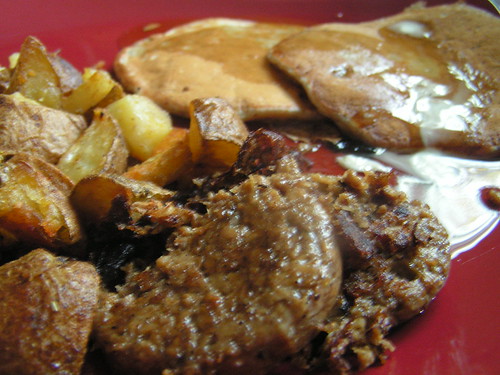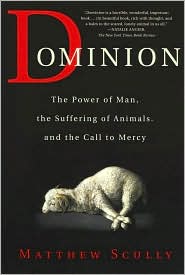In the kitchen of my shared apartment in Leipzig, I was forced to behold a disgusting sight and smell. A tomato, a half-eaten container of blueberry yogurt, more yogurt in a glass dish, and a few unopened snacks had been sitting on the countertop for the last four days, apparently left there by a flatmate who had gone on vacation. The tomato and yogurt had of course become moldy and attracted numerous fruit flies, so I grudgingly threw them in the dumpster outside. The remaining question was what to do with the unopened (and therefore unspoiled) items: berry-flavored applesauce, vanilla pudding with whipped topping, and another container of yogurt. I knew that the owner had probably forgotten their existence entirely and might never eat them—after all, they were put there at the same time as all the foul-smelling, spoiled food which was left out so carelessly. Therefore, there seemed to be only two possible courses of action: put them in the refrigerator and hope that the owner would find them eventually, or eat them myself. I did the former with the applesauce and unopened yogurt, which didn’t look that interesting. But the vanilla pudding looked like the ultimate creamy perfection, so I couldn’t resist indulging.
This instance is part of an unfortunate pattern that’s been plaguing me for the past few months: I see an animal-based food, decide that eating it won’t affect the demand much because it’s a small amount and/or I didn’t buy it myself, and my willpower breaks; or I order something at a restaurant which may or may not be vegan, but am too lazy to ask, and it ends up being non-vegan. Thankfully, the pudding incident is the worst of the sins I’ve engaged in, other than a time when I started nibbling some fancy cheese someone had brought to a picnic and ended up eating an amount half the size of a tennis ball. I also admit that part of my lazyness with asking about ingredients at restaurants has to do with being in Germany for the summer, where I don’t speak the language fluently. Yet still I worry that if I don’t bring these habits under control, they will escalate until I find myself knowingly purchasing animal products on my own.
Fortunately, the animal agriculture industry is at least partially right when it condemns small welfare improvements as the beginning of a “slippery slope” toward the banning of animal agriculture, but unfortunately it works the other way too: as soon as a vegan starts eating small amounts of animal products, they’ve put themselves on a dangerous path toward losing their veganism entirely. While I don’t think this will happen to me anytime soon (banning myself from buying animal products, even if I eat things that other people buy, seems straightforward enough), even this prohibition has its gray areas. For example, am I purchasing animal products if I buy a lunch at an all-you-can-eat buffet that contains both vegan and non-vegan items, and then put some non-vegan things on my plate at the last minute?
Calling oneself a vegan, while not being very strict, can also have its public relations problems. Anyone who’s a freegan or a not-so-strict vegan is undoubtedly familiar with the awkward situation that arises when you taste small amounts of animal products in front of people who know you’re vegan. Someone says, “But I thought you were a vegan!” and you’re forced to give a response like, “Well, I’m not always that strict” or “I’m just having a small taste, so it's not really feeding into the demand.” While this may make some almost-ready-to-be-vegans lose some of their fear of commitment, it can make others perceive you as weak-willed, and we don’t want to give omnivores that satisfaction. Not to mention that over time, our small forays into omnivory add up, so it’s not quite true that they have no affect on supply and demand—it’s just a very small effect compared to that of full-fledged omnivores.
Then again, being too strict a vegan can have its drawbacks too. The more “finicky” you are, the more people are going to perceive you as “unreasonable,” and this does not help the public’s perception of an already “fringe” lifestyle. I once made this mistake when I ordered some pasta at an Italian restaurant which wasn’t described on the menu as containing cheese, but it ended up having some sprinkled on top. This was in addition to a salad I had gotten, which automatically came with some milk-based dressing that wasn’t mentioned on the menu. I don’t remember whether the waitress was within earshot, but I do remember expressing my displeasure, and some others at the table immediately accused me of being “ungreatful” for what the cook must have meant as a nice garnish. While I still think my complaint was justified, no one else perceived it that way, so unfortunately I think my cause was hindered rather than helped. This was especially true since the damage, in terms of animal products used, could no longer be undone.
So for all you fellow vegans out there, my advice is this: try to keep your small indulgences in meat, eggs, and dairy to a minimum, but don't make so big a deal about it that the legitimacy of your position is undermined. If you ever get the sense that you’re at the beginning of a “slippery slope” toward non-veganism, that means it’s time to reaffirm where your boundaries are, before it’s too late. But meanwhile, don’t be so dogmatic you turn into a fussy person whom no one wants to emulate.










